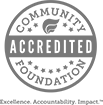Supporting Access for People with Autism
Sources disagree on the current prevalence of autism and disagree even more on what causes it. But one thing everyone involved with autism will tell you: more people than ever need support to manage the disorder — and that support is not easy to access.
“We’re seeing a tsunami of autism now,” said Dustin Watkins, Executive Director of Bittersweet Farms. “Some of this increase is due to a lack of awareness and understanding of the condition in the past — but it is also definitely increasing. Autism is a spectrum and families with people on the spectrum face all kinds of challenges, no matter where they are on that spectrum.”
But, thanks to the work of visionary leaders in the northwest Ohio autism community, the region affords youth and adults across this spectrum more support and connection than many U.S. cities its size, and those resources are growing. In this annual report, we showcase three innovating organizations that have received Greater Toledo Community Foundation support via family foundations, fundholder gifts and grants.
Bittersweet Farms
As understanding of autism grew throughout the 1970s, many area schools provided classroom education and other services for children whose autism required significant support. But when these children aged out of public education in their late teens, most faced a limited future with aging parents absent peer-group friends or meaningful work.
One special education teacher in Toledo Public Schools, Bettye Ruth Kay, dreamed of a better future for her students. In 1983, that dream became Bittersweet Farms.
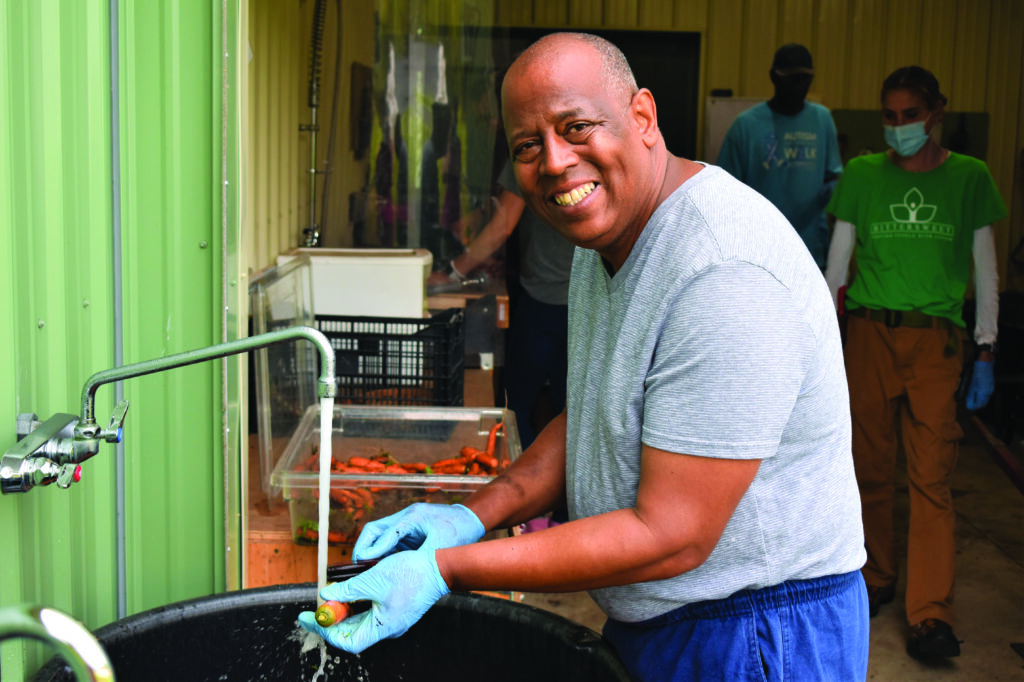
Modeling her vision on England’s Somerset Court, the world’s first farmstead community for adults with autism, Bettye began Bittersweet Farms with the help of area businesses and community members. Today, nearly 150 individuals are participating in day programs or living onsite at three different Bittersweet locations in Whitehouse, Lima and Pemberville — which still include some of Bettye’s students from the late 1970s.
Bittersweet’s focus on horticulture, animal care and creative arts reaps tangible benefits for program participants. “We could do more, but our workforce is the main limitation,” said Dustin, who joined Bittersweet’s support staff right out of college. “High behavioral needs require the highest grade of professional support because it is so much about rapport and relationships. It’s a real labor of passion — nobody gets into this kind of work because of the money. But we still have to be competitive to attract skilled professionals and offer quality programs that prospective employees recognize as making a difference.”
Bittersweet’s focus on horticulture, animal care and creative arts reaps tangible benefits for program participants. “We could do more, but our workforce is the main limitation,” said Dustin, who joined Bittersweet’s support staff right out of college. “High behavioral needs require the highest grade of professional support because it is so much about rapport and relationships. It’s a real labor of passion — nobody gets into this kind of work because of the money. But we still have to be competitive to attract skilled professionals and offer quality programs that prospective employees recognize as making a difference.”
Charitable donations are what make those programs possible. “The lion’s share of our funding comes from Medicaid — about 80-85%,” said Dustin. “Gifts from supporters make the crucial difference in the quality of our programs. Many of our core initiatives have been funded by Greater Toledo Community Foundation grants and gifts from donor advised funds.”
Avenues for Autism
When Bob and Suzy Tyner’s first child began exhibiting developmental abnormalities in the early 1950s, autism wasn’t even a word yet, let alone a diagnosis. But the Tyners were an exceptional couple. They relentlessly pursued the limited resources available at that time to help their son live his best life — and they had a vision for other families like them.
“In the 1950s and 60s, they were carving new trails,” said Dave Tyner, Bob and Suzy’s youngest son. “Dad’s original idea was ‘I want a building where people could go to get what they need.’ Mom and Dad knew that if they just had some information, they could have made a huge difference with their own son, and having blazed those trails, they felt they could make a difference for others.”
At first, the brick-and-mortar building of Bob’s dreams was out of reach — but eventually, the family started the Tyner Foundation in the late 1990s and began fundraising in earnest. In 2004, the Tyners established their foundation as a supporting organization with GTCF and the Great Lakes Center for Autism, which became Avenues for Autism in 2004, now housed in ProMedica’s Finnegan Center. Today, the Tyner Foundation is the primary source of non-Medicaid funds for the organization, and the Tyner family remains highly involved in both the fund’s and Avenues’ governing boards.
Mary Jane Luck, the Tyner’s daughter noted, “In a lot of ways, these parents have to reinvent the wheel. Where do you get information? Where do you get a diagnosis — and how do you get in line for one, which itself can take some time? And once you do, it’s not a one-size-fits all as far as therapies go. Avenues for Autism streamlines this process for families.”
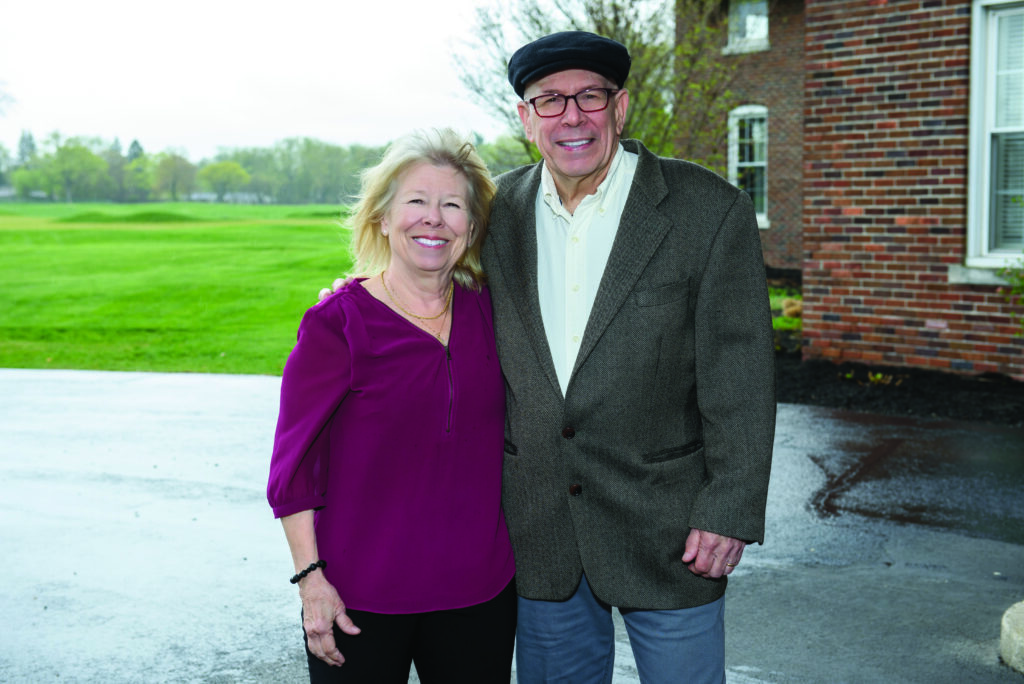
Avenues’ executive director, Stacy Harper agrees. “No two situations are the same for families with autism, and everyone’s journey is different,” she said. “Avenues is a place where families can get help, in person or online, with navigating our many area resources to find those that best fit their needs. We also provide highly trained therapists who work with caregivers as well as those on the spectrum.”
Many such families have needs that aren’t paid for by Medicaid — so the Suzanne Tyner Autism Fund was created specifically to meet these needs. Stacy gave an example: “An area family had a child who could not tolerate the tactile stimulation of a shower. They didn’t have a bathtub and couldn’t afford to pay for one. A grant from this fund covered the cost of a tub and its installation, so the child could bathe comfortably.” In 2022, this fund provided roughly $45,000 to more than 30 families for medical and social services, therapies, sensory items, tuition, safety equipment and more.
Bob and Suzy have now passed, and their legacy is being maintained by Dave and Mary Jane, with Dave’s two sons now involved as well. “GTCF has been a huge factor in the growth of Avenues for Autism” said Dave, noting that because he and Mary Jane both live out of town, GTCF’s local business connections and guidance have been as important to them as GTCF’s management of the Tyner Foundation’s funds. He concluded: “In our early days, when it was mainly fundraising, our resources were a total pass-through. Now, as a supporting organization, our foundation can provide a certain amount in perpetuity to Avenues — and more than 90% of the money goes directly to families to pay for services or other needs.”
Valentine Theatre
Thanks to the efforts of Destination Toledo, The Ability Center and several area tourism attractions, Toledo is on its way to becoming a Certified Autism Destination city for families nationwide.
The Valentine Theatre is now among these attractions — but this wasn’t the initial goal of the Valentine staff when they began exploring autism-friendly programming for children.
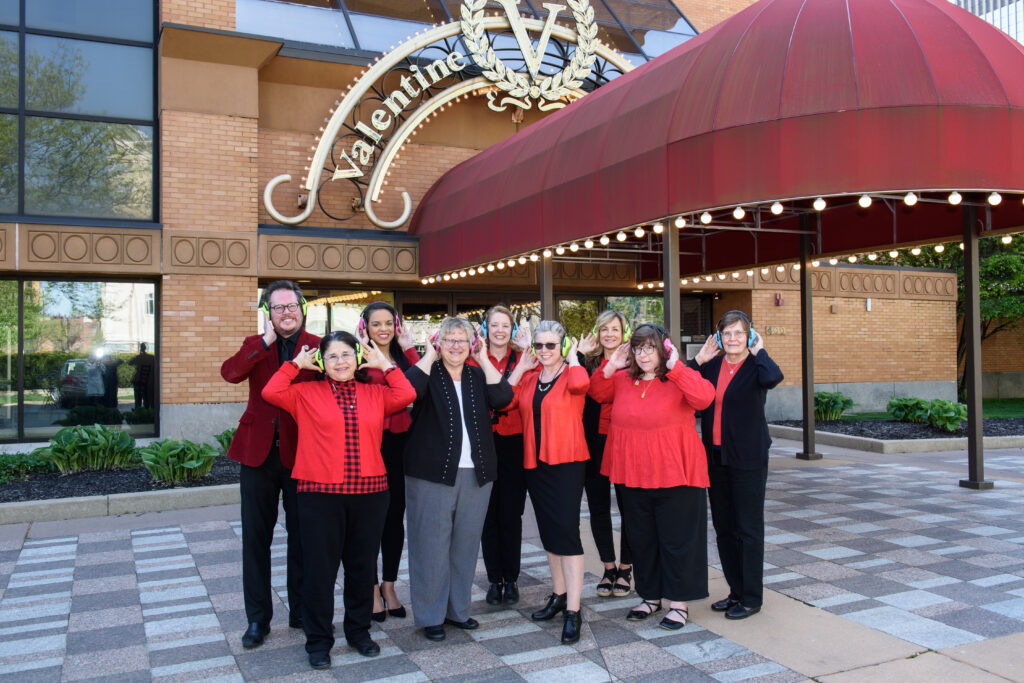
“Our Executive Director, Jori Jex, had nominated me to be a panelist on the Ohio Arts Council sustainability grant,” said Valentine Development and VSD Coordinator Kelby Sodeman, describing her experience in Columbus. “One of the presentations that stood out to me was a New Albany Symphony program for children with autism called ‘Sensory Saturdays.’ It made me realize there were whole populations that were missing out on what we had to offer.”
Valentine’s leadership was enthusiastic about Kelby’s report and the possibilities of creating special programming for children with autism. On the advice of former Executive Director of Avenues for Autism Katina Harding, the Valentine created a “retreat space” adjacent to the front lobby where audience members who needed a stimulation break could go during a performance.
Another essential key to an autism-friendly experience was high-quality training for [#] of their all-volunteer team of ushers. Suitable programming designed for youngsters with autism was another need. Jori explained how GTCF made both possible: “GTCF had a community builder grant in two amounts — $50,000 and $25,000. Our application for the smaller grant was approved and allowed us to pay for staff and volunteer training. It also covered resources for visitors like headsets and fidget toys and the programming itself, so we could avoid taking on a heavy financial risk as we implemented the program.”
Kelby added: “The national touring groups who present our children’s theatre were already offering sensory-friendly adaptations of their programs. So, even though there were modifications to the experience, all of our usual families came anyway — they didn’t feel like it wasn’t for them.”
GTCF-funded staff and volunteer training also earned the Valentine a Certified Autism CenterTM (CAC) designation. The certification is granted by the International Board of Credentialing and Continuing Education Standards (IBCCES), and supports the effort to make Toledo the second autism-friendly destination city in the U.S.
But it’s the joy of children who’ve been introduced to the experience of live theatre of which the Valentine team is most proud.
“We had tons and tons of compliments!” said Kelby. “For our very first show, I stood where our usual will-call table was to distribute headsets and fidget toys, just letting people know what we were doing. People would say, ‘I have a friend whose child has autism — I’m going to let them know about this!’ Most families like this have never been able to take their child to live theatre for fear their child might be too disruptive or that they might be ‘shushed’ or made to feel uncomfortable. Our mission was to make the Valentine a warm and accommodating place for children with autism and their families to make memories together.”
